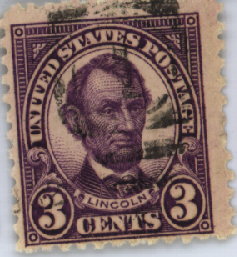The Split Grows Deeper
Under the Missouri Compromise, all this region was closed to slavery. However, dominant slave-holding elements in Missouri objected to letting Kansas, which adjoined her on the west, become a free territory. For Missouri would then have three free neighbors and, yielding to an already strong movement, would probably soon be forced to become a free state herself. For a time, Missourians in Congress, backed by southerners, blocked all efforts to organize the region.
At this point, Stephen A. Douglas, senior Senator from Illinois, stirred up a storm by proposing a bill that enraged all free-soil men. Douglas argued that since the Compromise of 1850 left Utah and New Mexico free to decide on slavery for themselves, the Missouri Compromise had long been superseded. His plan called for two territories, Kansas and Nebraska, and permitted settlers to carry slaves into them. The inhabitants themselves were to determine whether they should enter the Union as free or slave states.
Northerners accused Douglas of currying favor with the south in order to gain the Presidency in 1856. Angry debates marked the progress of the bill. The free-soil press violently denounced it. Northern clergymen assailed it. Businessmen who had hitherto befriended the south turned suddenly about-face. Yet, on a May morning, the bill passed the Senate amid the boom of cannon fired by southern enthusiasts. At the time, Salmon P. Chase, an antislavery leader, prophesied:
"They celebrate a present victory, but the echoes they awaken shall never rest until slavery itself shall die."When Douglas subsequently visited Chicago to speak in his own defense, the ships in the harbor lowered their flags to half-mast, the church bells tolled for an hour, and a crowd of 10,000 hooted so that he could not make himself heard.
The immediate results of Douglas' ill-starred measure were momentous. The Whig Party, which had straddled the question of slavery expansion, sank to its death, and in its stead a powerful new organization arose, the Republican Party, whose primary demand was that slavery be excluded from all the territories. In 1856, it nominated for the Presidency John Frémont, whose five exploring expeditions into the far west had won him renown. Although it lost the election, the new party swept a great part of the north. Such free-soil leaders as Chase and William Seward exerted greater influence than ever. Along with them appeared a tall, lanky Illinois attorney, Abraham Lincoln.
 The flow of both southern slaveholders and antislavery men
into Kansas resulted in armed conflict, and soon the territory
was being called "bleeding Kansas." Other events brought the
nation still closer to upheaval: notably, in 1857, the Supreme
Court's famous decision concerning Dred Scott.
The flow of both southern slaveholders and antislavery men
into Kansas resulted in armed conflict, and soon the territory
was being called "bleeding Kansas." Other events brought the
nation still closer to upheaval: notably, in 1857, the Supreme
Court's famous decision concerning Dred Scott.
Scott was a Missouri slave who, some 20 years before, had been taken by his master to live in Illinois and Wisconsin, territory where slavery was forbidden. Returning to Missouri and becoming discontented with his life there, Scott sued for liberation on the ground of his residence on free soil. The southern-dominated Court decided that by voluntarily returning to a slave state, Scott had lost the right to be free and ruled that any attempt by Congress to prohibit slavery in the territory was invalid.
The Dred Scott decision stirred fierce excitement throughout the north. Never before had the Court been so bitterly condemned. For the southern Democrats, the decision was a great victory, since it gave judicial sanction to their justification of slavery in the territories.
